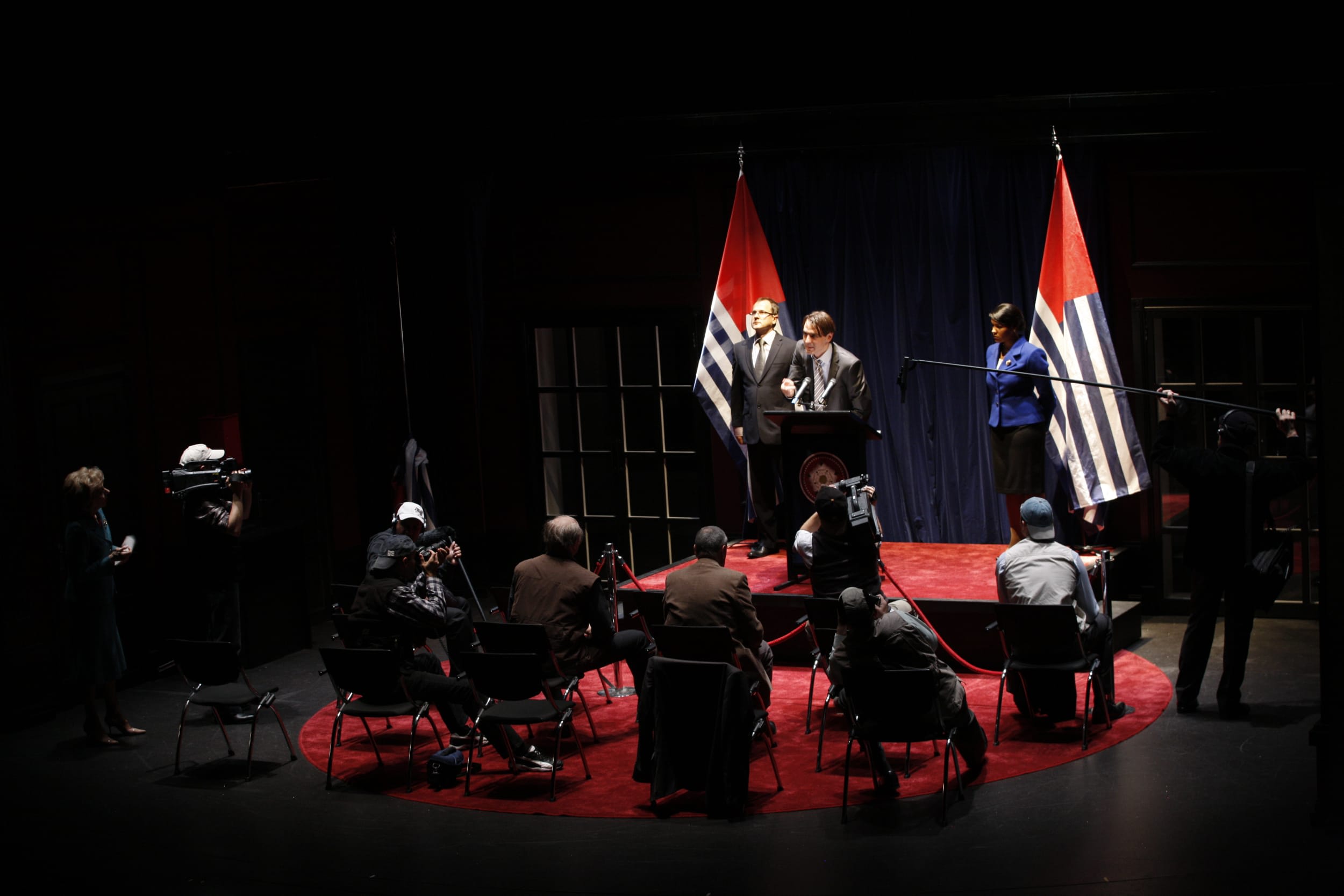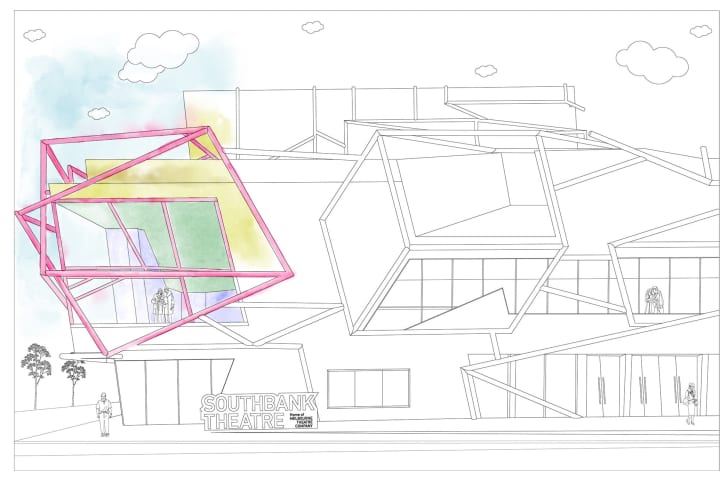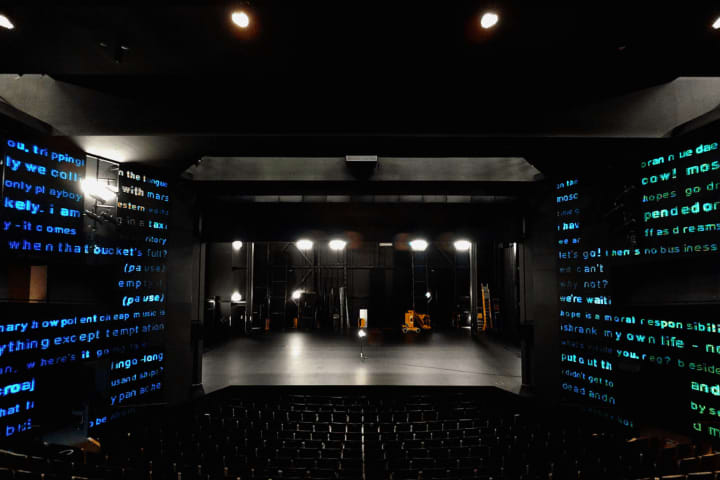Observant audience members in the front rows may have noticed tiny microphones at the actors’ hairline. These radio mics amplify the actors’ voices so everyone can hear the dialogue, but an essential part of this process happens at the mixing desk.
During a performance, the front-of-house audio operator balances sound at the mixing desk. The mixing desk is at the back of the auditorium as it’s important that they can hear what the audience is hearing. This way, the operator can mix the actors’ voices coming through their microphones with each other and the music.
‘We try to amplify the actors’ vocals in such a way that the audience doesn’t notice the difference in volume but still can hear all the words,’ explains Terry McKibbin, Sound Supervisor at Southbank Theatre. ‘The sound is being done well when it isn’t obvious. Conversely, most sound effects and music are intended to be noticed!’ Those sound effects and music are controlled by the stage manager from the prompt corner using a computer program called Qlab.
‘During the performance, mixing the actors’ voices on the sound desk takes concentration and dexterity as the controls are turned on and off for each line of dialogue in the play.’ – Terry McKibbin, Sound Supervisor
 The radio mic rack backstage at Southbank Theatre. PHOTO: Terry McKibbin
The radio mic rack backstage at Southbank Theatre. PHOTO: Terry McKibbin
‘We use little radio microphones on the actors and control their volumes on the mixing desk and then send it to loudspeakers,’ explains McKibbin. ‘Firstly the back-of-house (BOH) sound operator puts the radio microphones on actors so they are hidden in their hair. This is a surprisingly complex process.’ When the actors are getting their mics checked before a show starts, the crew mix things up with a ‘word of the day’ or theme for their sound check. ‘We put a different word or theme on it every show,’ says McKibbin, ‘so cast members who come at beginners to check their radio mic is working have to sing a song containing the word or theme.’
‘During the performance, mixing the actors’ voices on the sound desk takes concentration and dexterity,’ explains McKibbin, ‘as the controls are turned on and off for each line of dialogue in the play.’ Throughout the performance, the BOH operator sits by the radio mic rack and can address any issues with the actor’s microphones in the wings.
Of the dozens of MTC productions McKibbin has worked on, he identifies Richard III in 2010 – ‘a very successful and large production’ – as a favourite at Southbank Theatre. He also enjoys the challenge of musicals like Kiss of the Spider Woman, Ladies in Black, Vivid White and Twelfth Night. ‘In general, musicals are the most complex for sound because the actors’ voices have to be balanced with musical instruments as well as each other.’
 Richard III is one of McKibbin's fondest memories of working at Southbank Theatre. PHOTO: Jeff Busby
Richard III is one of McKibbin's fondest memories of working at Southbank Theatre. PHOTO: Jeff Busby
Published on 5 June 2020





